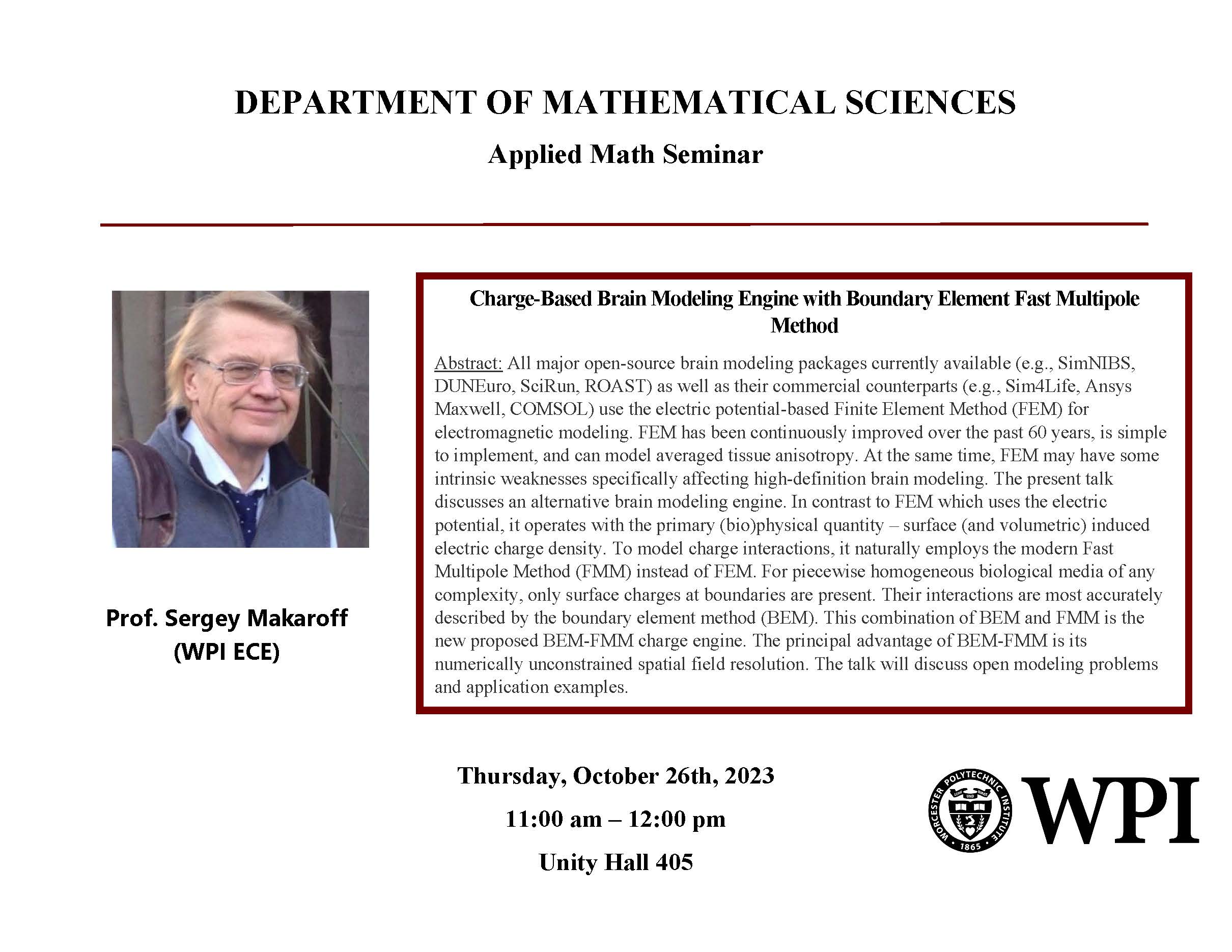Mathematical Sciences Department Applied Math Seminar - Sergey Makaroff, WPI "Charge-Based Brain Modeling Engine with Boundary Element Fast Multipole Method" (UH405)
11:00 a.m. to 12:00 p.m.

Mathematical Sciences Department
Applied Math Seminar
Speaker: Sergey Makaroff, WPI
Host: Sarah Olson
Thursday, October 26, 2023
11:00am - 12:00 pm
Unity Hall 405
Zoom: 966 5701 1062
Title: Charge-Based Brain Modeling Engine with Boundary Element Fast Multipole Method
Abstract: All major open-source brain modeling packages currently available (e.g., SimNIBS, DUNEuro, SciRun, ROAST) as well as their commercial counterparts (e.g., Sim4Life, Ansys Maxwell, COMSOL) use the electric potential-based Finite Element Method (FEM) for electromagnetic modeling. FEM has been continuously improved over the past 60 years, is simple to implement, and can model averaged tissue anisotropy. At the same time, FEM may have some intrinsic weaknesses specifically affecting high-definition brain modeling. The present talk discusses an alternative brain modeling engine. In contrast to FEM which uses the electric potential, it operates with the primary (bio)physical quantity – surface (and volumetric) induced electric charge density. To model charge interactions, it naturally employs the modern Fast Multipole Method (FMM) instead of FEM. For piecewise homogeneous biological media of any complexity, only surface charges at boundaries are present. Their interactions are most accurately described by the boundary element method (BEM). This combination of BEM and FMM is the new proposed BEM-FMM charge engine. The principal advantage of BEM-FMM is its numerically unconstrained spatial field resolution. The talk will discuss open modeling problems and application examples.